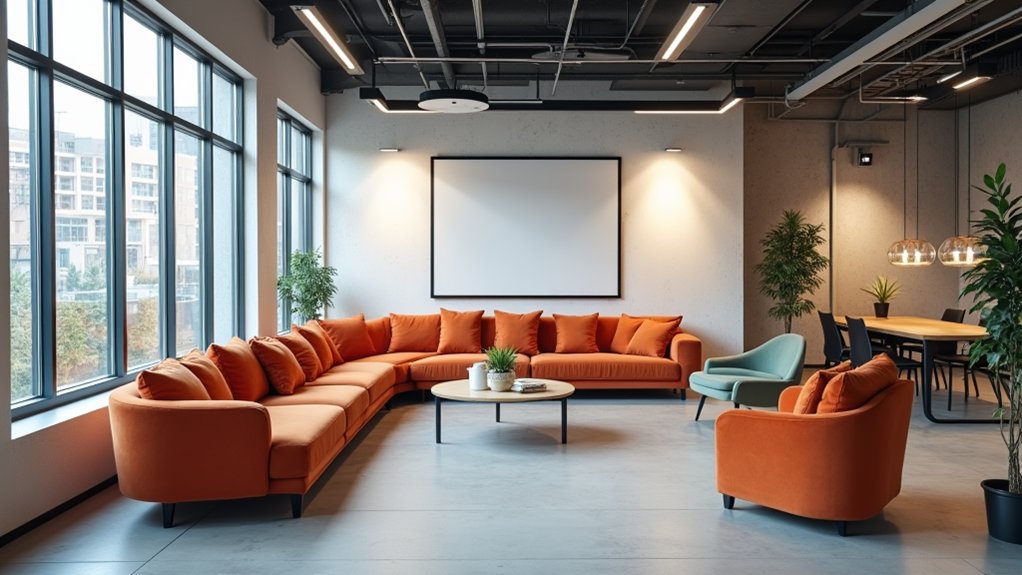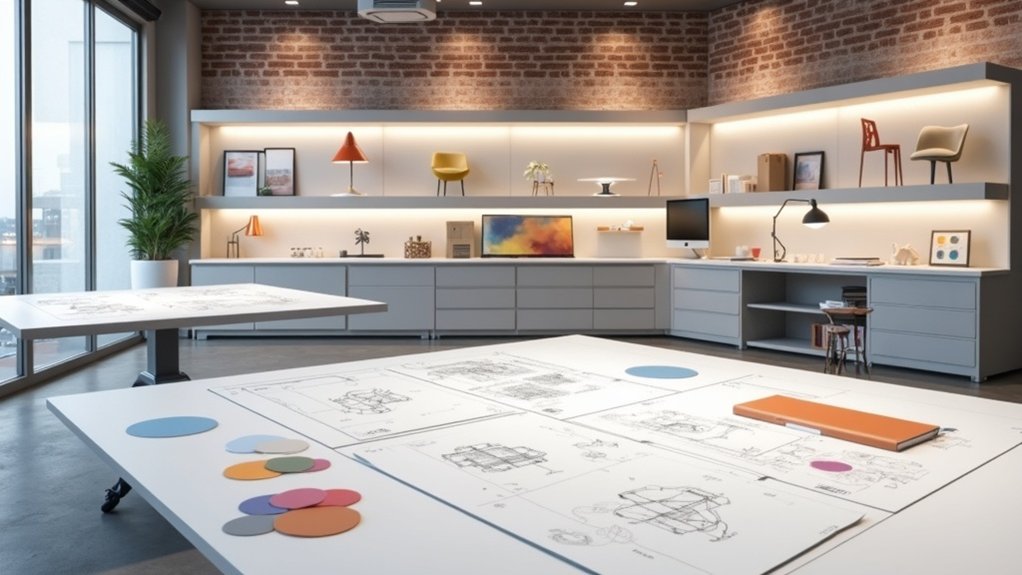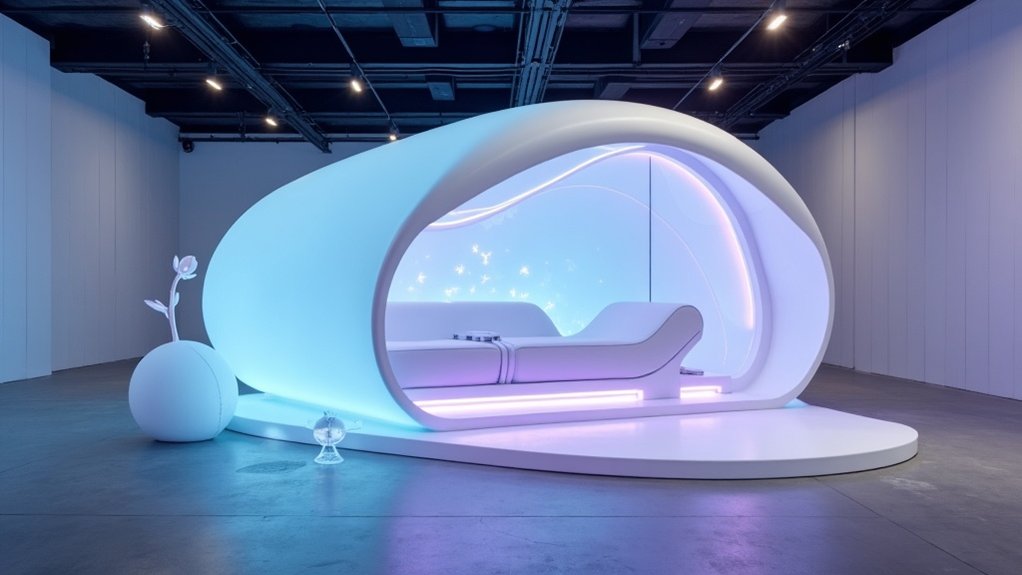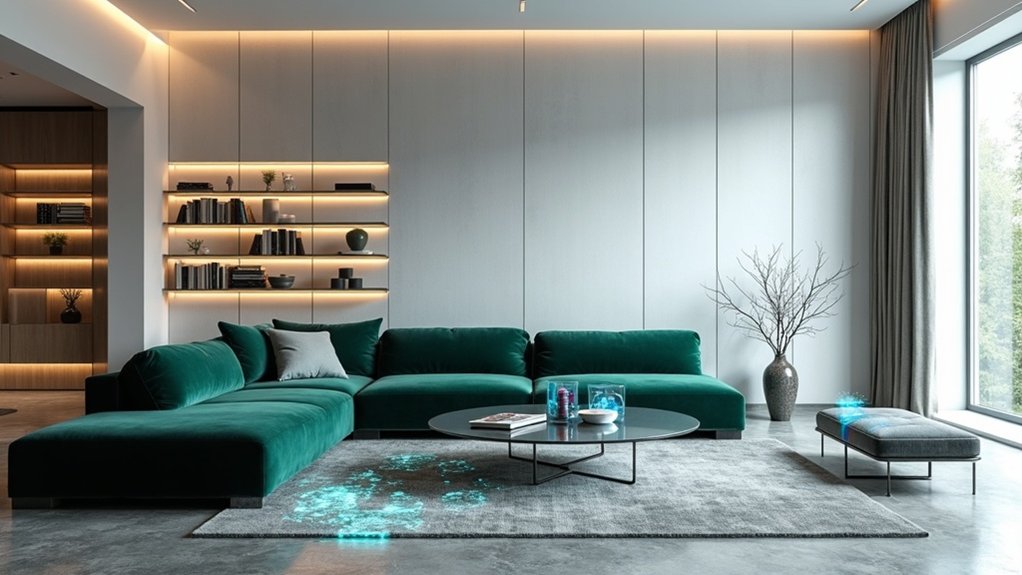While the furniture industry has traditionally relied on skilled craftsmanship and conventional design methods, artificial intelligence is rapidly transforming every aspect of how furniture is conceived, manufactured, and sold. AI-powered design tools now allow furniture creators to analyze vast amounts of data, leading to pieces that optimize both aesthetics and functionality while maintaining sustainability and ergonomic standards.
AI revolutionizes furniture design, merging data-driven insights with aesthetics to create sustainable, ergonomic pieces that redefine industry standards.
This technological revolution has particularly impacted the prototyping phase, where designers can rapidly revise and test multiple variations before settling on final designs. Recent studies show that 360-degree views are the most utilized AI shopping tool, with 45% of consumers actively engaging with this feature.
The integration of technology into furniture has become increasingly sophisticated, as exemplified by Steelcase's Ocular Coupe Towers. Modern office furniture now incorporates universal monitor mounts, camera-ready setups, and integrated tech panels that seamlessly blend with aesthetic design elements. The Roam Collection offers innovative solutions featuring mobile stands and wall mounts that promote enhanced collaboration in dynamic workspaces.
The furniture industry has witnessed a 25% increase in flexible solutions that adapt to evolving technologies, reflecting the growing demand for smart workplace solutions that improve productivity and connectivity.
Customer experience has undergone a significant transformation through AI-powered virtual showrooms and virtual reality applications. These tools allow customers to visualize furniture in their spaces before making purchases, leading to decreased return rates and increased satisfaction levels.
AI-driven personalization analyzes customer behavior and preferences to create tailored shopping experiences, though consumer trust in AI recommendations remains at moderate levels.
The concept of flexible workspace solutions has gained prominence, with collections like Steelcase Flex exemplifying the trend toward adaptable office environments. These solutions support spontaneous tasks and future needs through built-in mobility features, allowing teams to modify their spaces as technology and work patterns evolve.
The furniture industry's data management has also become more sophisticated, with AI tools organizing complex product variants and process flows from design to delivery.
European furniture brands are actively embracing this technological shift, with CSIL reporting that 60% of manufacturers are currently implementing AI technologies.
This integration of artificial intelligence across the furniture industry continues to drive innovation in design, manufacturing, and retail, suggesting a future where technology and traditional craftsmanship coexist to create more efficient and user-centered furniture solutions.









